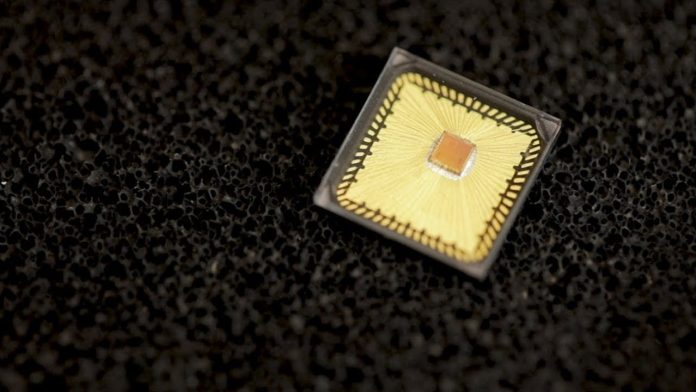Australia-based semiconductor company Morse Micro, developing Wi-Fi HaLow for low-power mid-range IoT solutions, has raised $13 million in new funding. The latest Series A funding round takes its total to $30 million, and will go on expanding its product and technology development teams at home and abroad.
Morse Micro is the author of the sole chip for Wi-Fi HaLow, billed as an ultra-low-power and long-range Wi-Fi-based technology for IoT environments, going up against low-power wide-area (LPWA) network technologies like LoRaWAN, Sigfox, and NB-IoT. The Sydney-based firm said it will expand its focus into “emerging applications and… innovative wireless solutions”. The funding comes from Blackbird Ventures, Main Sequence Ventures, Clean Energy Innovation Fund, Skip Capital, and US entrepreneur Ray Stata.
Wi-Fi HaLow (802.11ah), announced back in 2016, uses sub-GHz spectrum frequencies below 900 MHz to nearly double the range of traditional Wi-Fi, which relies on the 2.4 GHz and 5 GHz spectrum bands. It offers better penetration and lower power for long life fit-and-forget IoT solutions.
It will offer multi-vendor interoperability by using existing Wi-Fi protocols, making it compatible with Wi-Fi Alliance certified products, and offering the same government-grade security and easy setup as current Wi-Fi solutions. It straddles the line between low-power short-range technologies like Bluetooth Low Energy (BLE) and Zigbee, and the traditional LPWA set, including LoRaWAN, NB-IoT, and Sigfox.
Morse Micro claims a 10-times advance on its Wi-Fi HaLow chips in terms of range, compared with conventional Wi-Fi; IoT modules based on its hardware will last “many years” on a single coin-cell battery, it says. Its team includes “original inventors” of Wi-Fi, and designers of Wi-Fi chips, the company says. It is a contributor to the Wi-Fi Alliance to bring interoperability for Wi-Fi HaLow; the current vice-chair of the Wi-Fi HaLow task group is a member of the firm’s executive staff.
Michael De Nil, chief executive at Morse Micro, said: “Australia is the home of original Wi-Fi inventors. Our goal now is to revolutionize IoT, similar to the way Wi-Fi revolutionized computers and laptops. Now’s the time to redesign connectivity; imagine a world without power cords, spotty connectivity, or empty batteries. We’re at an exciting inflection point for Wi-Fi HaLow, we’re both ramping up and expanding our teams in order to be a major force in the industry. This investment is great validation of our technology and our team from our investors during so much uncertainty around the world.”
Nick Crocker, partner at Blackbird Ventures, commented: “My journey with Morse Micro started on a trip to Silicon Valley together, raising money for Morse when it was still just an idea. I’ve always loved Michael and Andy’s humility and quiet brilliance. It makes me so proud to know that one of the world’s best engineering teams is being assembled here in Sydney, and we at Blackbird are proud to continue supporting the Morse team as they start to put their chips into millions of devices around the world.”

